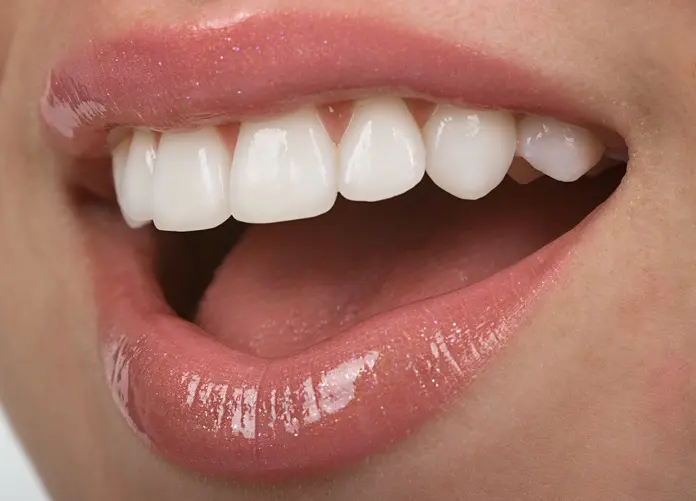Missing teeth can be a significant concern, not just for your smile but also for your overall oral health. Dental implants have emerged as a revolutionary solution, offering a long-term remedy that blends seamlessly with natural teeth. Unlike traditional bridges or dentures, dental implants provide stability, functionality, and aesthetics that enhance the quality of life for those with missing teeth.
How Do Dental Implants Improve Oral Health?
Dental implants go beyond merely filling the gap left by a missing tooth. Maintaining and enhancing dental health depends critically on them. The capacity of dental implants to replicate the natural tooth root helps retain the jawbone by means of which they are mostly beneficial.
Lack of stimulation a natural tooth generates causes the jawbone to start to weaken when a tooth is gone. Similar stimulation of the jawbone by dental implants helps to prevent bone loss and preserves face structure.
Dental implants also stop adjacent teeth from moving. Missing a tooth can cause misalignment and biting issues by allowing the adjacent teeth to migrate into the void. By filling this gap, dental implants keep the teeth in their proper positions, ensuring a balanced and functional bite.
Dental implants also make oral hygiene easier. Unlike bridges, which can be challenging to clean around, implants can be brushed and flossed like natural teeth. Because they are easy to clean, plaque buildup and gum disease are less likely to happen, which means your gums and teeth will be healthy.
What Are The Benefits Of Choosing Dental Implants Over Other Tooth Replacement Options?
Among other tooth replacement choices, dental implants provide many benefits over dentures and bridges. These main advantages help dental implants to be a chosen option:
Durability and Longevity
- One of dental implants’ great strengths is durability. While bridges and dentures usually need to be changed every five to ten years, careful maintenance can extend their lifetime.This long-term reliability makes implants a cost-effective solution over time.
Superior Comfort and Convenience
- Implants are securely anchored in the jawbone, mimicking the function of natural teeth. This stability eliminates the slipping and discomfort often associated with dentures. Patients can eat, speak, and smile confidently without the worry of their replacement teeth moving out of place.
- Unlike dentures, which must be removed for cleaning and at night, dental implants are permanently fixed. This means no more dealing with adhesives or nighttime removals, simplifying daily routines.
Aesthetic Appeal
- Natural teeth look and feel, hence dental implants are made to reflect that. Their natural look improves confidence and self-esteem since they fit very well with the surrounding teeth. Their realistic look helps patients feel more comfortable in social and professional settings.
Preservation of Oral Health
- Traditional bridges require the filing down of adjacent teeth to support the bridge. This process can weaken the natural teeth and compromise their integrity. In contrast, dental implants do not impact the neighboring teeth, allowing them to remain strong and healthy.
- Implants boost the jawbone, therefore stopping the usual bone loss resulting from a missing tooth. This preserves the jaw’s and the face’s natural forms, therefore avoiding the sunken look brought about by bone loss.
Enhanced Functionality
- Because dental implants function like natural teeth, they restore full chewing ability. This means patients can enjoy a wider variety of foods without restrictions, contributing to better overall nutrition and health.
- Implants also help improve speech, as they eliminate the lisps and slurred speech that can be caused by ill-fitting dentures.
Improved Oral Hygiene
- Comparatively to bridges and dentures, implants are easier to maintain. Brushing and flossing them like natural teeth helps to lower the risk of cavities, gum disease, and plaque development.
Dental implants offer a far more superior solution for tooth replacement by providing durability, comfort, aesthetic appeal, and the preservation of oral health. They help restore functionality and confidence, making them a preferred choice for many patients seeking a long-term solution for missing teeth.
How Long Do Dental Implants Typically Last?
The longevity of dental implants is one of their most appealing features. Properly maintained dental implants can last many decades—often a lifetime. Studies spanning ten years reveal an amazing 95–98% success rate for dental implants.
Different elements help dental implants last for a certain period. Excellent dental hygiene comes first. Along with periodic dental visits, regular brushing and flossing help to ensure the implant stays clear of gum disease and infection, therefore preserving its stability. Moreover, the success of the implant depends much on the quality of the implant material and the knowledge of the dental practitioner executing the surgery.
While the crown attached to the implant may require replacement due to wear and tear, the implant post itself, made from durable titanium, is designed to withstand the forces of chewing and other oral activities for many years.
Are Dental Implants Suitable For Everyone?
Although many people find dental implants to be a great solution, they might not be appropriate for everyone. Dental implant candidates should have enough bone density to sustain the implant and healthy gums. Individuals with chronic illnesses such as diabetes or leukemia, or those who have undergone radiation therapy to the head or neck area, may need to be evaluated carefully to determine their suitability for the procedure.
Smokers are also at higher risk for implant failure. Smoking can impair healing in the mouth, leading to complications. However, with proper dental evaluation and planning, many people who initially may not seem suitable candidates for implants can still receive them, sometimes with additional treatments such as bone grafts.
Overall health and commitment to maintaining oral hygiene are critical factors. To guarantee the long-term success of the implants, patients have to be ready to dedicate to frequent dental checkups and thorough oral hygiene.
A major development in dental science, dental implants offer a dependable and aesthetically acceptable fix for lost teeth. Dental implants have evolved as the chosen choice for many trying to restore their smiles and oral function by enhancing oral health, providing many advantages over conventional tooth replacement solutions, and displaying amazing longevity. Although not everyone would be a suitable candidate, developments in dental surgery have made implants available to a wider spectrum of patients, therefore enabling more people to gain from this creative approach.
Frequently Asked Questions
1. How much do dental implants cost at JBDentistry?
The cost of dental implants at JBDentistry ranges from $3,000 to $4,500 per tooth. The final price depends on the complexity of the procedure and the materials used.
2. How long does the dental implant procedure take?
It could take a few months from the first appointment all the way through to the placement of the crown. This includes the healing time required for the implant to integrate with the jawbone.
3. Is the dental implant procedure painful?
Local anesthesia is used to numb the area, and any post-operative pain can typically be managed with over-the-counter pain relievers.
4. What is the success rate of dental implants at JBDentistry?
Our dental implant procedures have a success rate of approximately 95-98%, reflecting our commitment to excellence and the use of advanced technology.
Ready to Transform Your Smile? Contact Us Today!
With our professional dental implant services, we at JBDentistry are committed to assisting you in achieving a healthy and beautiful smile. Put an end to letting a lack of teeth hinder your progress!
Call (954) 941-4310 to schedule an appointment. If you have any queries or need any assistance, our helpful staff is here to help. Experience the difference that exceptional dental care can make.


